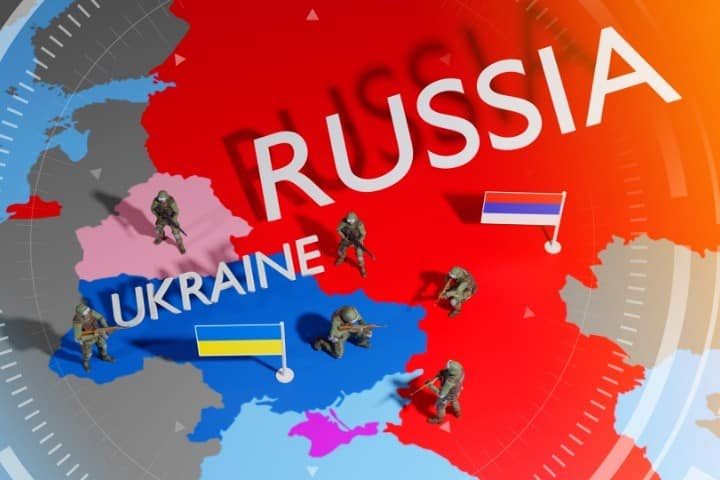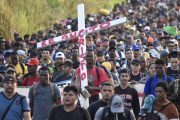
SINGAPORE — The West does not respect the neutrality of developing countries and puts pressure almost daily on those nations who have yet to impose anti-Russian sanctions, Russia’s Sergey Lavrov said in a Sputnik News interview in Moscow.
He further said that America’s feeling of superiority and infallibility is the main reason for Russia’s present clash with the West, and indicated that Western nations are not keen on the conflict with Ukraine to end.
He lambasted the United States for undermining the independence of the European Union (EU), saying the U.S. “has subjugated” European politicians. Alluding to the words of European Commission President Ursula von der Leyen, he said that the kind of “democracy” they champion can be traced to “a right for them to impose on others what democracy should look like,” he said.
He further stated that Washington pushes for other nations to comply with its stance while providing no benefits for compliance and threatening penalties to any dissenters. Lavrov slammed such an approach as “the pinnacle of pragmatism, but also cynicism,” saying that the crux of U.S. foreign policy is American exceptionalism and Washington’s belief in its “infallibility and superiority.”
Insisting that the conflict in Ukraine has persisted because Western nations led by the U.S. refuse to stop “until they conclude that they have eliminated threats to their hegemony,” Lavrov claimed that Kyiv has been banned by the West from achieving peace with Moscow.
“Nobody objected when [Ukrainian President Volodymyr] Zelensky prohibited negotiations with Russia by law. Nobody scolded him when he … claimed that he doesn’t understand who makes decisions in Russia and who he should talk to,” Lavrov said, hinting that Zelensky likely feels embarrassed to be manipulated by the West and hence uses psychological projection.
Bringing Communist China into the discussion, Lavrov portrayed present Russian-Chinese ties as the strongest ever, elaborating that they have “no restrictions, no limits, and no issues banned for discussion,” and said that both Moscow and Beijing simply hope to explore national development “within the framework of existing norms of international trade.”
In Moscow’s view, the present form of globalization “no longer has positive traits,” Lavrov stated, adding that “we realized it sooner because we were the first to take a punch.” He explained his statement further by contending that Russia had “less immersion” than Communist China in the U.S.-influenced global financial system and other mechanisms, which Washington now “abuses.”
During a visit to South Africa last month, Lavrov alleged that the West halted peace negotiations between Russia and Ukraine in the early months of the war. He said Russia did not “refuse negotiations” with Ukraine and was willing to talk, but the U.S. and other Western nations discouraged Kyiv from negotiations.
His comments echoed those made last year by Russian President Vladimir Putin that Ukraine’s Western allies prevented talks from happening.
Although the U.S. and other Western nations have accused Russia of a lack of sincerity to form a plan to end the nearly year-long conflict, which began on Feb. 24 last year, Lavrov said that “It is well known that we supported the proposal of the Ukrainian side to negotiate early in the special military operation and by the end of March, the two delegations agreed on the principle to settle this conflict…. It is well known and was published openly that our American, British, and some European colleagues told Ukraine that it is too early to deal, and the arrangement which was almost agreed was never revisited by the Kyiv regime.”
Russia has constantly dismissed Ukrainian and Western demands that it withdraw totally from Ukraine as a condition for any talks. U.S. President Joe Biden has said that he would be willing to talk with Putin if the Russian leader showed that he seriously wished to cease Russian actions in Ukraine.
Lavrov was in Pretoria for talks with South African counterpart Naledi Pandor as Russia pushes to boost ties with Africa’s most developed country, an historical ally in light of the ongoing conflict in Ukraine.
South Africa was considered the most prominent of several African nations to adopt a neutral stance on the war, refraining from denouncing Russian actions in Ukraine, to the chagrin of the U.S. and other Western countries that regard South Africa as crucial to their efforts to foster ties in Africa.
Lavrov’s visit and talks with Pandor marked his second visit to Africa in the space of six months as Moscow garnered support for its cause in Ukraine.
Russian actions in Ukraine and its impact on Africa’s 1.3 billion people, including rising oil and food prices, were poised to feature significantly during Lavrov’s talks with Pandor.
“We are fully alert that conflict, wherever it exists in the world, impacts negatively on all of us, and as the developing world it impacts on us particularly as the African continent,” Pandor said before the talks. “This is why as South Africa we consistently articulate that we will always stand ready to support the peaceful resolution of conflicts in the continent and throughout the globe.”
Lavrov repeated a claim he had previously made, namely that the West was culpable for the rise in global food prices.
Historically, the Soviet Union had backed South Africa’s current ruling party, the African National Congress, before its collapse in 1991. The Russia-South Africa relationship is mainly what prompted South Africa to refrain from a UN vote last year decrying Russia’s actions in Ukraine.
Notably however, notwithstanding South Africa’s official neutral stance on Ukraine, the South African armed forces declared they would conduct joint drills with the Russian and Chinese navies off South Africa’s eastern coast this month. Lavrov maintained that the naval exercises would be “transparent” and abide by international law.



